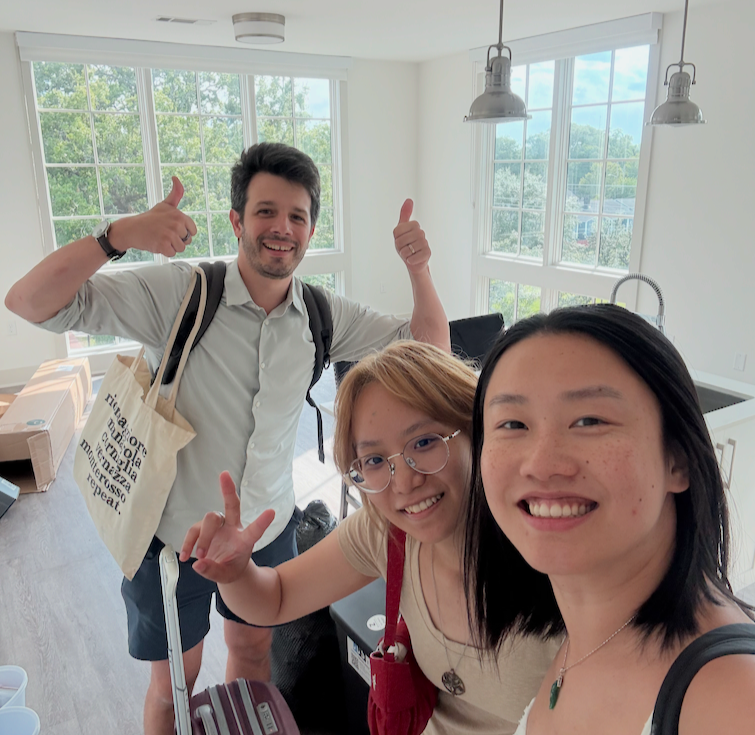5 Things You Didn’t Know You Need to Save For to Buy in NYC
August 29, 2025
But with the arrival of September also comes the long-awaited, long-promised Fed interest rate cut. Mortgage rates are already at a 10-month low, so it actually might not matter what the Fed does.
If you thought buying a home is just about saving for the down payment and making enough money to pay for the mortgage, you either don’t live in New York, or you are about to be disappointed. There are hidden costs, stricter requirements, and nuances that surprise even seasoned buyers.
Here are five things many New Yorkers don’t realize they need to save for…
1. A Larger Down Payment Than You Expected
Yes, 20%-25% down is standard when you buy in NYC. Most co-ops would like to see 25%, and while condos can sometimes allow 10% down, many require 20% downpayment.
But if your dream home is in one of the prestigious co-ops along Fifth Avenue, Park Avenue or Central Park West—the co-op boards often require 50% down. I have had listing agents refusing to show buyers before seeing proof of funds.
2. Post-Closing Liquidity
This one surprises nearly everyone, and from my conversations with real estate agents outside NYC, it seems to be a New York special. Post-closing liquidity means money you still have after you’ve closed—funds that are liquid and accessible (think cash, stocks or bonds, not retirement accounts you can’t touch without penalty).
Condos want to see 6-12 months of your total monthly debt (that’s the sum of your monthly mortgage, maintenance, insurance, and any other debt such as student loan payments, auto loans etc.), sitting in your liquid accounts after closing. Co-ops are stricter, because you are literally going into business with your neighbors (you are buying shares in a corporation which owns the building). They usually want to see 24 months of liquidity. It’s their way of ensuring that if you lose your job right after moving in, you won’t default—and your neighbors won’t have to pick up your bills.
One time, I was showing a buyer on Park Avenue, and the listing agent proudly told me that if I thought the post-closing liquidity of $2 million was high for a $2 million listing in this co-op, in the building across the street where she once sold, the board wanted to see $12 million in post-closing liquidity for a $2 million listing! o
✨🏡✨
Are you dreaming of your next home? Book a free 30-minute consultation with me with no strings attached.
3. Closing Costs
Expect to spend an additional 2–4% of the purchase price (and sometimes more if you’re buying a new development or using financing). These costs could include:
Mansion tax:
1% for $1,000,000 – $1,999,999
1.25% for $2,000,000 – $2,999,999
1.5% for $3,000,000 – $4,999,999
2.25% for $5,000,000 – $9,999,99
Legal fees:
$3,500 - $5,000+
Building fees:
$500 - $2,500+,
Bank and government recording fees:
$1,000+
Title insurance:
0.04% of the mortgage amount (condos only)
Mortgage recording tax: -
1.925% of the mortgage amount (condos only)
I don’t want to get lost in the weeds here for every different scenario, but if you want the full laundry list of possible closing costs, book a call with me and I’ll be more than happy to share it with you!
The bottom line is:
You need to save for closing costs too. Set aside a cushion so you’re not blindsided at the closing table.
4. Moving & Renovation Costs
Even if you’re moving into a pristine home, there are costs you might not think about—
Movers (even intra-city moves can cost thousands of dollars!),
Furniture (maybe you finally splurge on an interior designer to help you create the most ideal layout for your new home, which is easily tens of thousands of dollars),
Curtains or electric shades (I have seen quotes of $20,000 for electric shades in a 2,000-square-feet one-bedroom!),
Custom-built-out closets (I have heard $35,000 quotes for building out all the closets in a 1,200-square-feet two-bedroom — albeit this apartment had 8 closets, which is a lot for its size),
Light fixtures (one chandelier only can run you thousands on the purchase price and another thousand to be packed, moved and installed),
Small touch-ups (just changing the countertop can cost you thousands).
5. Emergency & Peace-of-Mind Funds
Homeownership is amazing, but it’s also unpredictable. That peace of mind fund? Priceless. Whether it’s a leaky faucet or a surprise assessment, you’ll be grateful you saved extra. A client of mine had to deal with their ceiling plaster in the primary bedroom falling off!
While I’m so happy that no one got hurt, it was a long and complicated battle with the insurance company to get money back, while they had to pay the contractors up front to fix it so they could sleep in their bed again!
Other things you might not even realize can run you deep in New York City: holiday tips for your building staff can add to to $1,000+ each Christmas depending on how big the team is, and how generous you want to be! And yes, homeowners should tip more than renters.
The Big (Financial) Picture
Buying a home in New York City is more than meets the headlines. But with planning, it’s completely doable. I’ve helped buyers who weren’t sure they were ready get their dream apartment because we built a realistic financial picture together, and I’ve also talked other clients out of buying a home for now.
If you’re curious about what your numbers might look like, book a call with me. I’m happy to walk you through it. I will give it to you straight, and we can come up with a plan and the right timeline for you!
Xo,
Judy

